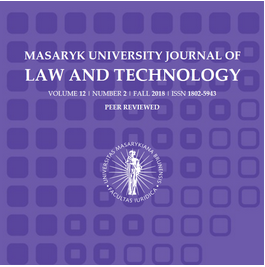Multiple Personalities and the Proteus Effect in Collaborative Virtual Environments. A Wittgensteinian Viewpoint
Multiple Personalities and the Proteus Effect in Collaborative Virtual Environments. A Wittgensteinian Viewpoint
Author(s): Stefano Cavagnetto, Bruce GahirSubject(s): Semiology, Philosophy of Language, Theory of Communication, Sociology of Culture, ICT Information and Communications Technologies
Published by: Masarykova univerzita nakladatelství
Keywords: Virtual; virtual personality; language games; transformed social interaction; cyberworlds; virtual game play; semiospheres;
Summary/Abstract: What does it mean to be you? How drastically can a person change and still remain, in the eyes of either themselves or their peers, the same person? Until recently, these questions were typically asked in the context of philosophy, psychoanalysis, or science fiction. However, the increasingly common use of avatars during computer-mediated communication, collaborative virtual environments (CVE' s) in particular, are quickly changing these once abstract questions into practical quandaries that are fascinating, thought-provoking, potentially paradigm shifting for those who study social interaction, and potentially devastating to the traditional concept of human communication. Given the advent of collaborative virtual reality (CVR) technology, researchers have begun to systematically explore the phenomena of Transformed Social Interaction (TSI)1. The Proteus effect is a particular application of TSI in which a user's self-representation is modified in a meaningful way that is often dissimilar to the physical self. When the user then interacts with another person, the user's behaviour conforms to the modified self-representation regardless of the true physical self or the others impressions.2 In an earlier introductory paper3 we detailed a conceptual framework that illustrated the idea of the self as composed of information in multiple cyberworlds, this tentative framework was utilised to explain a “layering” feedback process that may occur as a result of the self interacting in a CVE, in addition we expanded this framework to integrate an anthropological viewpoint of the self. In this paper our intention is to provide further understanding of the relationship between the Proteus effects and the conceptual model of multiple virtual personalities interacting in CVE using the Wittgensteinian language games framework, we expand our earlier paper to suggest that the notions of a “virtual personality” and “virtual game grammar” may hopefully bring a refreshing approach to examining the Proteus effect.
Journal: Masaryk University Journal of Law and Technology
- Issue Year: 5/2011
- Issue No: 2
- Page Range: 177-197
- Page Count: 21
- Language: English

